In a recent flurry of bookshelf reorganizing, I came across the collection of books saved from my childhood. Alice in Wonderland, Wind in the Willows, A Wrinkle in Time, Half Magic, Stuart Little. Charlotte’s Web, The Secret Garden, Swallows and Amazons, to name just a few. Many of these books have tattered covers and yellowing pages; they’ve survived multiple moves, from East Coast to West, from California to Oregon. As I pulled them off the shelf, I dipped into them, recalling cozy evenings from my childhood when my mother would read to me and my sisters, even long after we had become independent readers. We would get into our pajamas and gather around her in one bed or another, and we’d let the words cascade over us. I never realized until now what a good reader she was, her voice both calm and theatrical. We were captivated by the pleasure of story, and by the beguiling music of language spoken aloud.
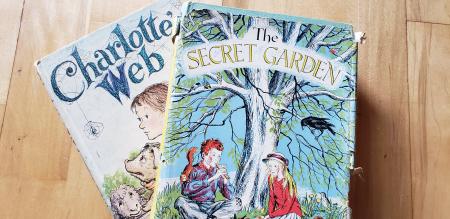
I can see so clearly now that these books played an important role in making me into a writer. In some ways that early exposure to good books may have been more important in my development as a writer than my MFA. It was the start of the training of my ear, my imagination, my heart.
What is striking to me now is that these books for kids contain most of the elements associated with good adult books, most notably character development and compelling language. Think of Colin and Mary slowly forging a relationship in The Secret Garden. Think of Stuart facing the challenge of trying to live in the human world with his tiny mouse stature in Stuart Little. Think of Meg and her brother Charles Wallace in A Wrinkle in Time dealing with the unexpected arrival of Mrs. Whatsit, Mrs. Who, and Mrs. Which in their lives.
The pleasurable rhythms of language are particularly on display in books for younger children. Permanently etched in my memory is the refrain from Millions of Cats (one of the most tattered books in my collection): “Hundreds of cats, thousands of cats, millions and billions and trillions of cats.” Likewise, I have committed to memory a recurrent refrain from Dr. Seuss’s McElligot’s Pool: “If I wait long enough; if I’m patient and cool/Who knows what I’ll catch in McElligot’s Pool!”
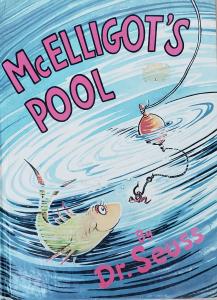
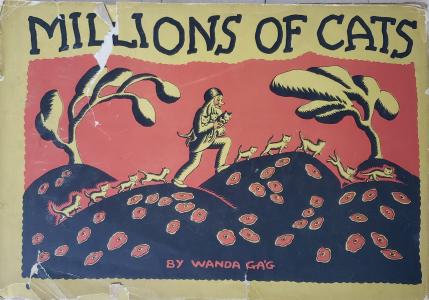
I’m impressed with something else too. These books are often deliciously zany. Uninhibited. The authors have seemingly indulged in flights of fancy for the pure fun of it, unconcerned about judgment, unhampered by the need to impress their readers with sophistication or technique. They have allowed their imaginations free rein. Their currency is often pure delight, a quality often in short supply in books for adults.
There are two books that stand out for me as having been particularly influential. One is The River by Rumer Godden. It tells the story of a young English girl, Bea, who is living in India. On the cusp of adolescence, she aspires to be a writer. Her world is turned upside-down when her younger brother dies of a snake bite. The tone of the book is calm and straightforward, not the least bit histrionic, as it depicts this girl’s first encounter with death. When I was reading it as a child it was my first encounter with death too, and I found it unbearably moving.
The Trouble with Jenny’s Ear, by Oliver Butterworth, affected me in a totally different way. It tells the story of another young girl who, after an illness, develops the ability to read the thoughts of adults. She uses this power to win a TV quiz show, but along the way she also discovers that the thoughts of adults are remarkably mundane. I didn’t really believe that such mindreading could happen, but when immersed in the book, I was fully able to suspend my disbelief and imagine it could. Butterworth’s seamless combination of realism and fantasy eventually became a model for my recent novel Weather Woman.
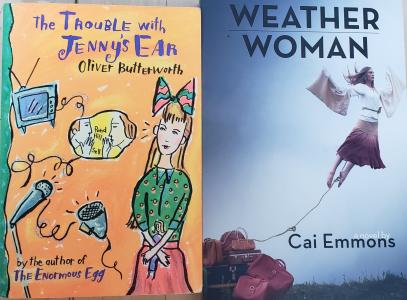
Reconnecting with these books and remembering how much I loved them, makes it seem obvious I would want to become a writer. In a way, the question for me is: Why doesn’t everyone want to write stories? I’ve now decided to reread some of these books in an effort to recapture for my own work their spirit of uninhibited playfulness.
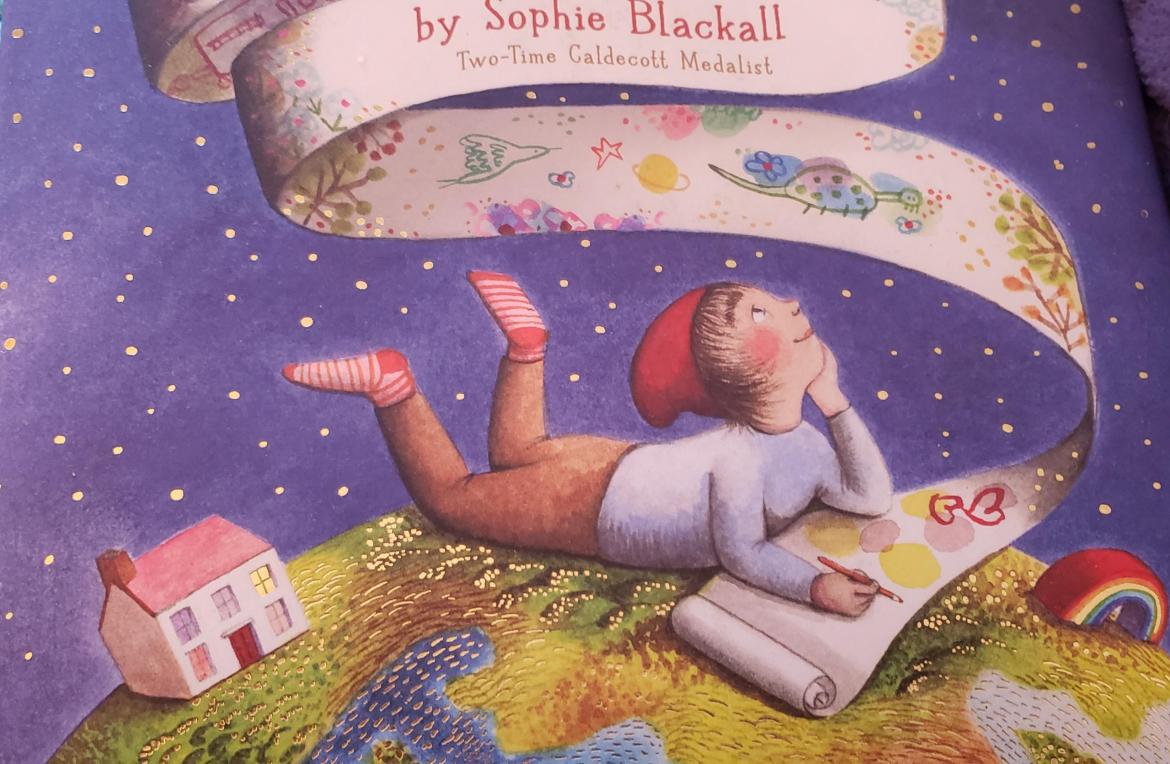
Add Comment